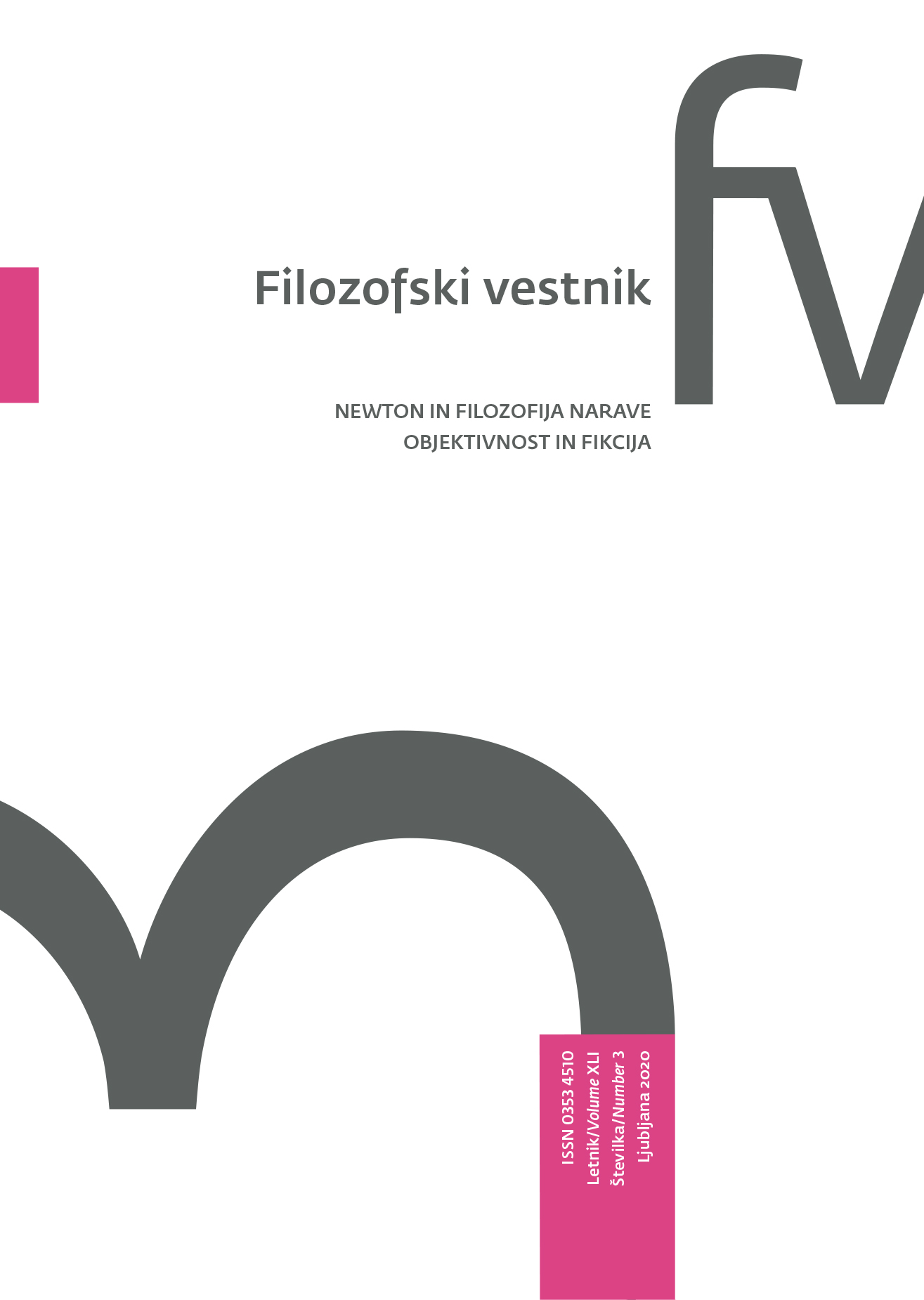Nietzsche’s Critique of Objectivity and Its “Tools”
DOI:
https://doi.org/10.3986/fv.41.3.02Keywords:
Nietzsche, critique of objectivity, Rangverschiebung, philosophy of the futureAbstract
The article takes as its venture-point the thesis that – whilst speaking of Nietzsche’s critique of objectivity – it is impossible to avoid the following fundamental problem: according to Nietzsche, objectivity and criticism are two facets of the same tendency that the “philosophy of the future” will have to overcome in the higher form of the philosophical “creation of new values”. From this perspective, it also becomes possible to explain Nietzsche’s decision to focus his critique in an attempt to intervene against what he calls Rangverschiebung, the “shift in rank ordering,” of the relationship between philosophy and science. Namely, by doing so, he immediately positioned the philosophical critique on a terrain that does not allow for the critique to follow its spontaneous tendency towards the ideal of objectivity. The first part of the article addresses the epistemological aspect of Nietzsche’s critique of objectivity, i.e. it explains why (and how) Nietzsche rejected all philosophical criteria of the foundation of objective understanding. The second part, by contrast, explains how it is possible, according to Nietzsche, to intervene against the ongoing process of the “shift in rank ordering” within the relationship between philosophy and science, which ultimately leads to a harmful complete monopolisation of truth by the ideal of scientific objectivity.
Downloads
References
Bunta, Aleš, »Lyotard: filozofija in vprašanje legitimacije vednosti«, Problemi 47 (8/2009),
str. 113–147
Deleuze, Gilles, Nietzsche in Filozofija, prev. Aljoša Kravanja, Krtina, Ljubljana 2011
Derrida, Jacques, Ostroge. Nietzschejevi stili, prev. Jana Pavlič, Hyperion, Koper 2010
Heidegger, Martin, Nietzsche Volume III: The Will to Power as Knowledge and as Metaphysics,
Harper and Row, San Francisco 1987
— »Nietzschejeve besede ‘Bog je mrtev’«, prev. Aleš Košar, Phainomena 9 (31–32/2000),
str. 143–187
Klossowski, Pierre, Nietzsche and the vicious circle, Continuum, London 1997
Lyotard, Jean-François, Postmoderno stanje, prev. Simona P. Grilc, Društvo za teoretsko
psihoanalizo, Ljubljana 2002
Nietzsche, Friedrich, Onstran dobrega in zla. H genealogiji morale, prev. Janko Moder,
Slovenska matica, Ljubljana 1988
— Volja do moči, prev. Janko Moder, Slovenska matica, Ljubljana 1991
— Tako je govoril Zaratustra, prev. Janko Moder, Slovenska matica, Ljubljana 1999
— Vesela znanost, prev. Janko Moder, Slovenska matica, Ljubljana 2005
— Jenseits von Gut und Böse. Zur Genealogie der Moral. Kritische Studienausgabe Herausgegeben
von Giorgio Colli und Mazzino Montinari, de Gruyter, Berlin and New York
Troha, Tadej, »Inercija krize«, Filozofski vestnik 37 (3/2016), str. 141–151
Zupančič, Alenka, »Asketski ideal«, Filozofski vestnik 20 (1/1999), str. 57–72
Žele, Marisa, »Antikrist in izvorna pozaba – varljivec v biblijski ontologiji«, Problemi 55
(9–10/2017), str. 109–135
Downloads
Published
How to Cite
Issue
Section
License
Authors guarantee that the work is their own original creation and does not infringe any statutory or common-law copyright or any proprietary right of any third party. In case of claims by third parties, authors commit their self to defend the interests of the publisher, and shall cover any potential costs.
More in: Submission chapter





